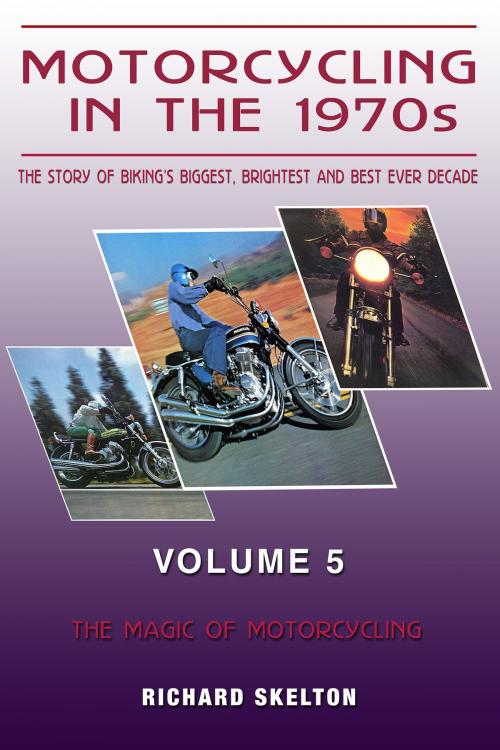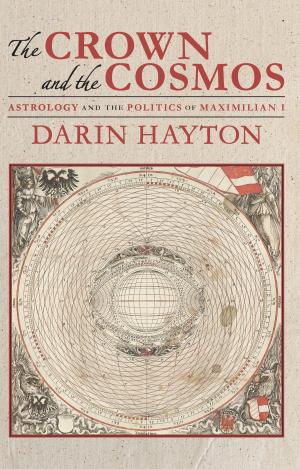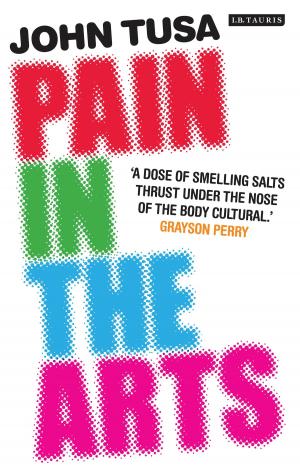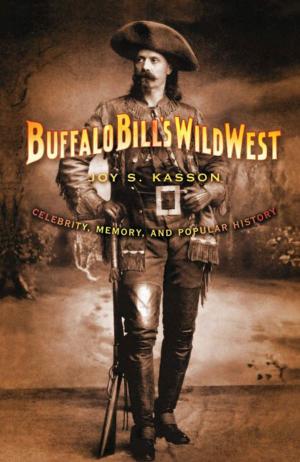Motorcycling in the 1970s The story of biking's biggest, brightest and best ever decade Volume 5:
The Magic of Motorcycling
Nonfiction, Reference & Language, Transportation, Motorcycles, History| Author: | Richard Skelton | ISBN: | 9780993002083 |
| Publisher: | Richard Skelton | Publication: | July 23, 2014 |
| Imprint: | Language: | English |
| Author: | Richard Skelton |
| ISBN: | 9780993002083 |
| Publisher: | Richard Skelton |
| Publication: | July 23, 2014 |
| Imprint: | |
| Language: | English |
'Motorcycling in the 1970s. The story of motorcycling's biggest, brightest and best ever decade' Volumes One to Five by Richard Skelton, author of Funky Mopeds.
'Motorcycling in the 1970s' is a series of five books about motorcycling. The books are designed to be read together, but can also be enjoyed separately.
The first volume, 'A Brief History of Motorcycling from 1887 to 1969', is a general history, swiftly told, of motorcycling in Britain from its beginnings at the end of the 19th century up until the dawn of the 1970s (interwoven to an extent with two-wheeled goings on in the USA and elsewhere).
It charts motorcycling’s pioneering years, skips through two world wars, tells of social acceptability in the 1920s, hard times in the 1930s and growing ostracisation and decline in the 1950s and 1960s.
This book attempts to make sense of the two-wheeled world order, and of motorcycling’s place in society and everyday life, and sets the scene for the larger, more detailed volumes which follow.
Volumes two to four are entitled Funky Motorcycling Parts One to Three and together they form a comprehensive, in-depth history of the bikes and motorcycling trends and events in the 1970s.
These three books tell the story of the arrival of the Superbike, the continuing and inexorable rise of the Japanese motorcycle industry and, partly from an insider’s point of view, the wasteful, lingering death of its British equivalent.
They tell of the thrilling and extraordinary sporting machines from Italy and of the bulletproof BMW twins designed in Bavaria. They tell of motorcycling culture and of two-wheeled life and lives.
In the 1970s, motorcycling became a leisure activity in a new and exciting way, there were more motorcyclists than ever before, or since, and dozens of new and ever more fabulous and technologically advanced motorcycles crammed the showrooms every year.
It was the time of Jarno Saarinen and Giacomo Agostini and of Kenny Roberts and Barry Sheene. The time of British magazines Motorcycle Sport and Bike, and of Cycle in the USA, the time of Mark Williams, Dave Minton and LJK Setright in his pomp.
These books set out the argument that although the protagonists were largely unaware of it at the time, the 1970s as a whole can now be seen to have been a golden era in the history of the movement, a pivotal decade which represent a high point in the history of motorcycling that is never likely to be matched.
The final book in the series is entitled ‘The Magic of Motorcycling'. It takes a sideways look at the 1970s classic motorcycle scene in the second decade of the 21st century, and explores what it is that makes motorcycling so special to so many people yet an anathema to a great many more.
This is followed by a comprehensive set of appendices listing nostalgic, amusing and sometimes poignant reminders of the life and culture of the 1970s, reminding us of the global goings-on and domestic backdrop underlying the motorcycling scene and, of course, all lesser matters!
'Motorcycling in the 1970s. The story of motorcycling's biggest, brightest and best ever decade' Volumes One to Five by Richard Skelton, author of Funky Mopeds.
'Motorcycling in the 1970s' is a series of five books about motorcycling. The books are designed to be read together, but can also be enjoyed separately.
The first volume, 'A Brief History of Motorcycling from 1887 to 1969', is a general history, swiftly told, of motorcycling in Britain from its beginnings at the end of the 19th century up until the dawn of the 1970s (interwoven to an extent with two-wheeled goings on in the USA and elsewhere).
It charts motorcycling’s pioneering years, skips through two world wars, tells of social acceptability in the 1920s, hard times in the 1930s and growing ostracisation and decline in the 1950s and 1960s.
This book attempts to make sense of the two-wheeled world order, and of motorcycling’s place in society and everyday life, and sets the scene for the larger, more detailed volumes which follow.
Volumes two to four are entitled Funky Motorcycling Parts One to Three and together they form a comprehensive, in-depth history of the bikes and motorcycling trends and events in the 1970s.
These three books tell the story of the arrival of the Superbike, the continuing and inexorable rise of the Japanese motorcycle industry and, partly from an insider’s point of view, the wasteful, lingering death of its British equivalent.
They tell of the thrilling and extraordinary sporting machines from Italy and of the bulletproof BMW twins designed in Bavaria. They tell of motorcycling culture and of two-wheeled life and lives.
In the 1970s, motorcycling became a leisure activity in a new and exciting way, there were more motorcyclists than ever before, or since, and dozens of new and ever more fabulous and technologically advanced motorcycles crammed the showrooms every year.
It was the time of Jarno Saarinen and Giacomo Agostini and of Kenny Roberts and Barry Sheene. The time of British magazines Motorcycle Sport and Bike, and of Cycle in the USA, the time of Mark Williams, Dave Minton and LJK Setright in his pomp.
These books set out the argument that although the protagonists were largely unaware of it at the time, the 1970s as a whole can now be seen to have been a golden era in the history of the movement, a pivotal decade which represent a high point in the history of motorcycling that is never likely to be matched.
The final book in the series is entitled ‘The Magic of Motorcycling'. It takes a sideways look at the 1970s classic motorcycle scene in the second decade of the 21st century, and explores what it is that makes motorcycling so special to so many people yet an anathema to a great many more.
This is followed by a comprehensive set of appendices listing nostalgic, amusing and sometimes poignant reminders of the life and culture of the 1970s, reminding us of the global goings-on and domestic backdrop underlying the motorcycling scene and, of course, all lesser matters!















